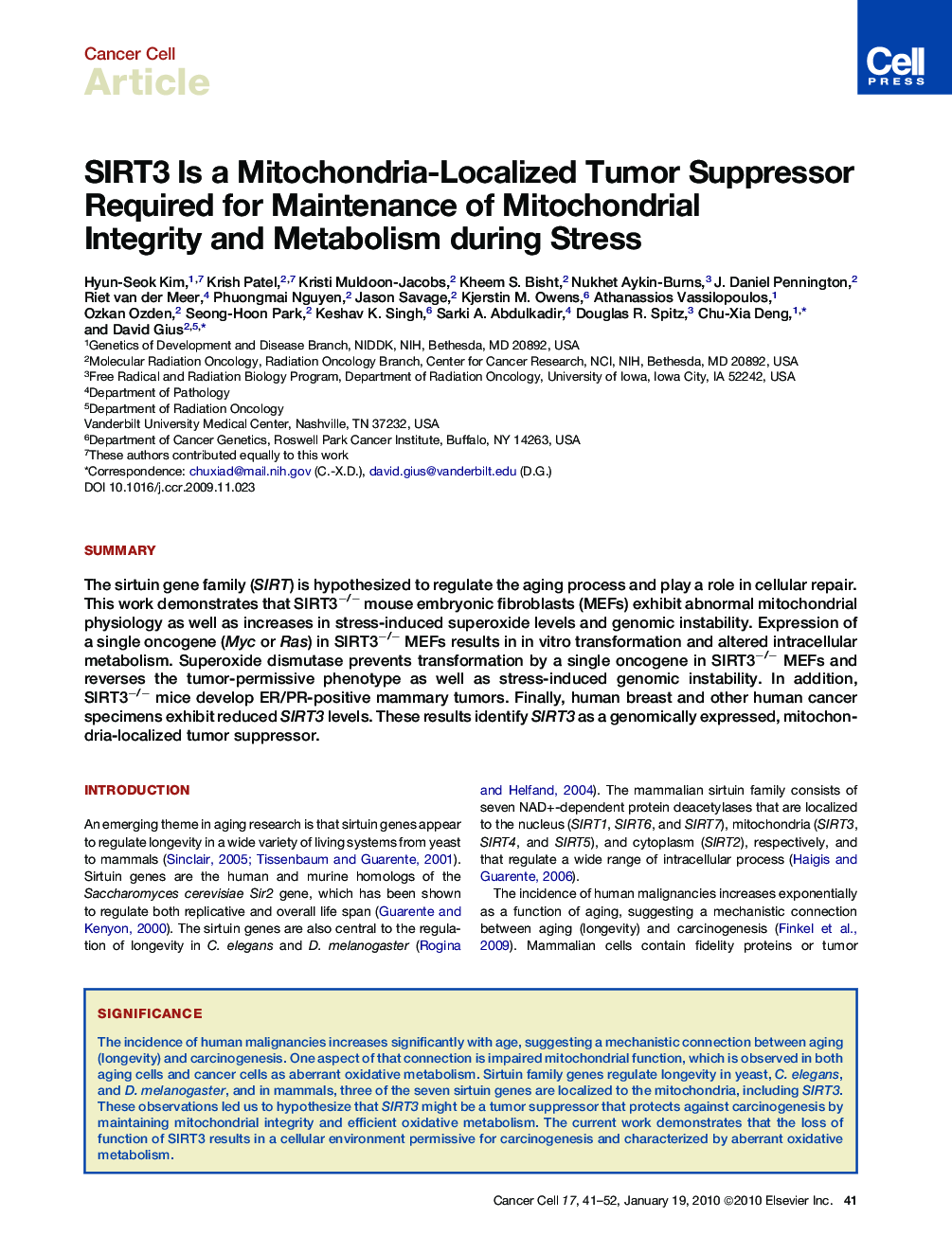| Article ID | Journal | Published Year | Pages | File Type |
|---|---|---|---|---|
| 2107556 | Cancer Cell | 2010 | 12 Pages |
SummaryThe sirtuin gene family (SIRT) is hypothesized to regulate the aging process and play a role in cellular repair. This work demonstrates that SIRT3−/− mouse embryonic fibroblasts (MEFs) exhibit abnormal mitochondrial physiology as well as increases in stress-induced superoxide levels and genomic instability. Expression of a single oncogene (Myc or Ras) in SIRT3−/− MEFs results in in vitro transformation and altered intracellular metabolism. Superoxide dismutase prevents transformation by a single oncogene in SIRT3−/− MEFs and reverses the tumor-permissive phenotype as well as stress-induced genomic instability. In addition, SIRT3−/− mice develop ER/PR-positive mammary tumors. Finally, human breast and other human cancer specimens exhibit reduced SIRT3 levels. These results identify SIRT3 as a genomically expressed, mitochondria-localized tumor suppressor.
► SIRT3 is a genomically expressed, mitochondrial-localized in vitro tumor suppressor ► Mice lacking SIRT3 develop ER/PR-positive invasive ductal mammary tumors ► SIRT3 is decreased in human breast cancer tumors and several other malignancies ► SIRT3 loss results in aberrant mitochondrial metabolism and genomic instability
